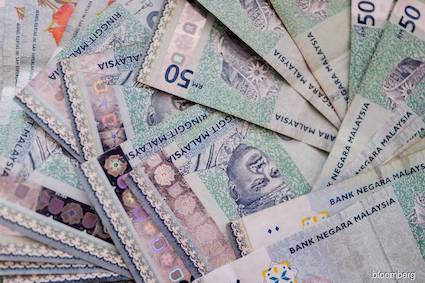
From Jamari Mohtar, Free Malaysia Today
Not many realise that a strong currency can exert significant drag on the economy over the long term, as industries are rendered non-competitive and jobs are lost.
While some might prefer a strong currency, a weak one can result in more economic benefits.
There is a common fallacy about stronger or appreciating currency being better than a weaker or depreciating currency. However, strong is not necessarily better than weak. It’s just a different ballgame.
To get a better understanding, take a look at the impact of a strong ringgit on various economic scenarios, namely exports and imports, outbound and inbound tourism, as well as outbound and inbound investments.
Let us analyse the impact of a strong ringgit on each scenario.
Export and import
The exporter is paid in foreign currencies through sales but it pays its workers, suppliers and investors in ringgit. With a strong ringgit, that means profits measured in ringgit fall.
As a result many companies either reduce exports or raise selling price, which then reduces demand and therefore exports.
Foreign companies exporting to Malaysia are paid in ringgit, and when converted into their own currencies it means higher profits.
That will prompt the company to expand its sales in Malaysia or reduce prices, which will lead to higher sales.
Consequently, a stronger ringgit will also prompt local purchasers to buy more from foreign producers, thereby increasing the country’s imports.
Outbound and inbound tourism
A stronger ringgit will benefit Malaysians who want to travel abroad for a holiday given that he gets more in the currency of the country he visits for every ringgit he has.
However, foreign tourists will be more reluctant to visit Malaysia.
On the other hand, a weaker ringgit would encourage inbound tourism.
Outbound and inbound investment
A stronger ringgit is a curse for a Malaysian investor who has already put money in another country.
To invest, he must convert his ringgit into the currency of the country where he puts his investments, and then reconvert the returns into ringgit.
If the ringgit strengthens, his rate of returns on the investment will be less than originally anticipated.
On the other hand, a foreign investor will see higher returns in his country’s currency from his investments in Malaysia.
Weak is better
What it means is that when the ringgit is stronger, three groups — importers, those who travel abroad and those who depend on foreign direct investments — reap the benefits.
On the other hand, exporters, the local tourism sector and those who invest overseas lose out.
The reverse is true if the ringgit is weak.
So based on these arguments, we can say that politicians who accuse the government of not knowing what to do to strengthen the ringgit are barking up the wrong tree.
The government correctly sees that the weakening ringgit is a non-issue as it will not lead Malaysia into an economic crisis as finance minister Tengku Zafrul Aziz puts it.
Calling for action to strengthen the currency is somewhat populist, especially when the election fever is raging.
If these politicians come into power with their own idea of a stronger ringgit while remaining disconnected to the real issue of a weaker ringgit vis-à-vis a stronger ringgit, the country will go down the drain.
Of course if there is a sharp drop of something like 20% in the value of the ringgit, it is as good as devaluation and that could lead to imported inflation. That is when caution is advised.
Politicians clamouring for a stronger ringgit must also realise that it is not that the currency is weakening against all other currencies but mainly against the US dollar, which is the world’s reserve currency.
As pointed out by Tengku Zafrul, while the ringgit has depreciated by 7.5% against the greenback since the beginning of 2022, many currencies in the region and developed countries have also fallen against the greenback.
Malaysia is actually doing well in comparison with Japan, the UK and EU, as the slide in the ringgit is the lowest compared with the other currencies.
Also, the ringgit has strengthened against the currencies of Malaysia’s other trading partners such as Japan, the UK, the EU, New Zealand and South Korea.
Additionally, economic fundamentals that have continued to strengthen are important in determining the robustness of the ringgit.
These include strong gross domestic product growth every quarter beginning with the last quarter of 2021, unemployment rate of 3.7% in July 2022 being the lowest since the Covid-19 pandemic hit the country, the robust rise in the industrial production index, the wholesale and retail trade, and export figures.
The country’s inflation rate is also manageable at 2.8% for the first seven months of 2022 due to price control measures, particularly through the provision of subsidies of almost RM80 billion this year.
What was the reaction of these politicians who seem to be paralysed by a weakened ringgit to Tengku Zafrul’s statement?
Contemptuously accusing him of downplaying the ringgit’s slide, and warning him a downtrend against the greenback would affect Malaysians as it would see an increase in the cost of imported food, is as good as saying that Tengku Zafrul is too naïve not to know this.
The problem of rising cost of imported food predates the current slide in the ringgit. In fact, the general problem of rising cost of living is a perennial problem.
Even economists interviewed by Malaysiakini said the ringgit slide effect on daily life is minimal, although it’s best to cut spending.
Jamari Mohtar is the Editor of Let’s Talk!, an e-newsletter on current affairs.


No comments:
Post a Comment
Note: Only a member of this blog may post a comment.